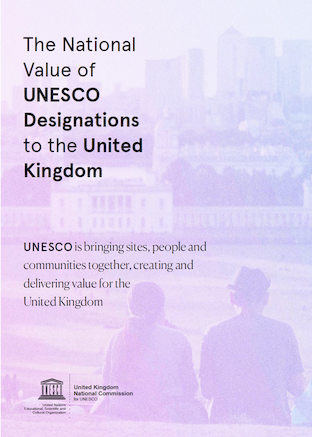The research shows how UK UNESCO projects create local networks to protect and conserve some of the most important places across the country and generate an estimated £151 million of financial benefit to local communities each year.
Set up as a specialised agency of the United Nations in London in the wake of the Second World War, UNESCO harnesses the power of education, culture, science, communication and information to advance global peacebuilding, sustainable development, intercultural dialogue and the eradication of poverty.
From expansive mountain ranges in the Highlands of Scotland to densely populated urban areas such as Bradford and Manchester, UNESCO certified projects include Global Geoparks, World Heritage Sites, Biosphere Reserves and Creative Cities. The projects span 12% of the UK’s land area and comprise of partnerships between 1,300 organisations, charities, and businesses. These partnerships are made mainly on a local level, between hundreds of groups all working together to support efforts in conservation, research, education, capacity building and tourism.
This new research shows that continued investment in UNESCO projects is critical in helping the UK and devolved governments meet the United Nations Sustainable Development Goals (SDGs). The report is the first to examine the cultural, environmental and financial benefits to UK life from these diverse UNESCO projects, and their active contribution to the SDGs. Along with preserving precious landscapes, buildings and archives, UNESCO projects are also leading research on vital issues such as water scarcity, refugee integration, climate change and child literacy.
"At a time when we all look for solutions to build more resilient societies after Covid-19, UNESCO sites offer a wealth of concrete actions to reinvent our relationship with nature, to develop decent jobs and foster social cohesion. This report by the UK National Commission to UNESCO is a blueprint for sustainability, and I believe all Countries can take inspiration from this research." Audrey Azoulay, UNESCO Director-General







